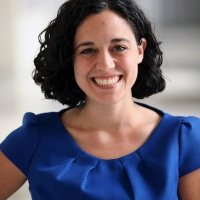Foreign Electoral Assistance in Post-Conflict Settings: Does it Work?
On October 26, 2015, the Wilson Center Africa Program hosted a discussion on the effectiveness of foreign electoral assistance in post-conflict settings. Mr. Brice Bado, a visiting scholar with the Southern Voices Network* and an Associate Researcher at the Centre de Recherche et d’Action pour la Paix (CERAP) in Cote d’Ivoire, presented his research on “Foreign Electoral Assistance in Post-Conflict Settings: Does it Work?” Mr. Rushdi Nackerdien, the Regional Director for Africa at the International Foundation for Electoral Systems (IFES), also presented, providing recommendations based on observations from his years of personal experience in the international electoral assistance arena.
Mr. Bado determined that in post conflict settings, electoral assistance programs are unsuccessful when they focus only on delivering free and fair elections. Rather, to be effective in post-conflict countries, electoral assistance programs must also contribute to establishing a durable peace by facilitating dialogue between former parties to the war, thus encouraging negotiation and compromise in the future. Mr. Bado recommended that electoral assistance providers in post-conflict settings should: (1) think of post-conflict electoral processes as peace processes, (2) improve the relationships between electoral stakeholders, and (3) focus more on civic education and on electoral stakeholders. Mr. Bado’s final recommendation was to have the African Union establish a specific unit for post-conflict electoral assistance to the African Peace and Security Architecture, as the continent sees so many post-conflict elections each year.
Both presenters emphasized the fact that post-conflict elections are highly unique, and cannot be provided with the same assistance as is provided to routine elections. Mr. Nackerdien discussed common challenges when preparing for elections in post-conflict countries, including determining the timing of the elections, developing the electoral architecture, machinery and oversight capabilities, and strengthening civil society and political parties. Mr. Nackerdien espoused similar recommendations to Mr. Bado, advocating for a long-term, simple, and inclusive approach for post-conflict electoral assistance programs, suggesting that assistance programs focus on building a culture of democracy that will endure through future elections.
*The Southern Voices Network (SVN) is a consortium of 16 research and policy organizations from across Africa that seeks to foster dialogue and increase the visibility of African perspectives within the U.S. policy arena. One of the main components of the SVN is the Africa Research Scholarship Program, through which the Wilson Center Africa Program hosts scholars from member organizations for a 3-month resident scholar program in Washington, D.C., allowing them to engage with U.S. policymakers and practitioners and conduct policy-oriented research. The SVN is made possible through the generous support of the Carnegie Corporation of New York.
Speakers

Associate researcher, CERAP

Hosted By

Africa Program
The Africa Program works to address the most critical issues facing Africa and US-Africa relations, build mutually beneficial US-Africa relations, and enhance knowledge and understanding about Africa in the United States. The Program achieves its mission through in-depth research and analyses, public discussion, working groups, and briefings that bring together policymakers, practitioners, and subject matter experts to analyze and offer practical options for tackling key challenges in Africa and in US-Africa relations. Read more
